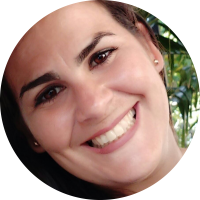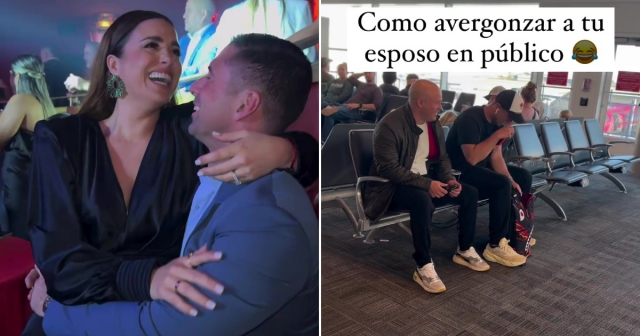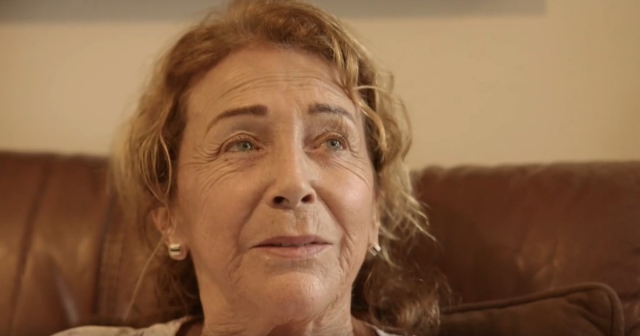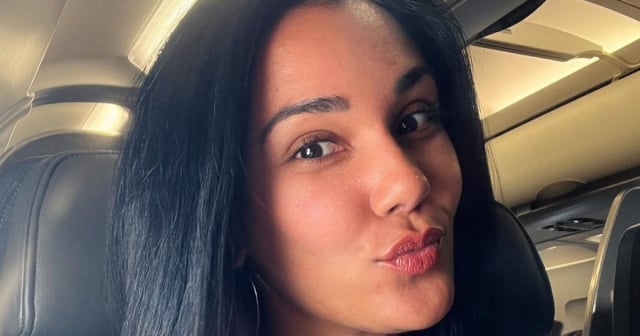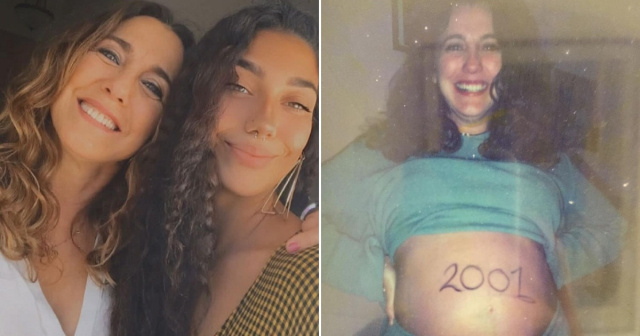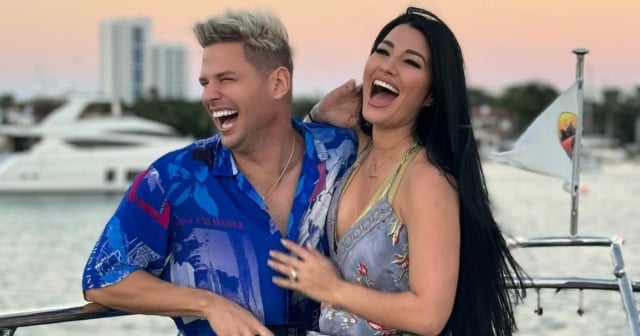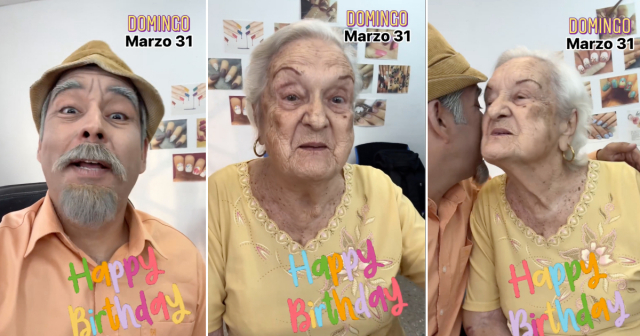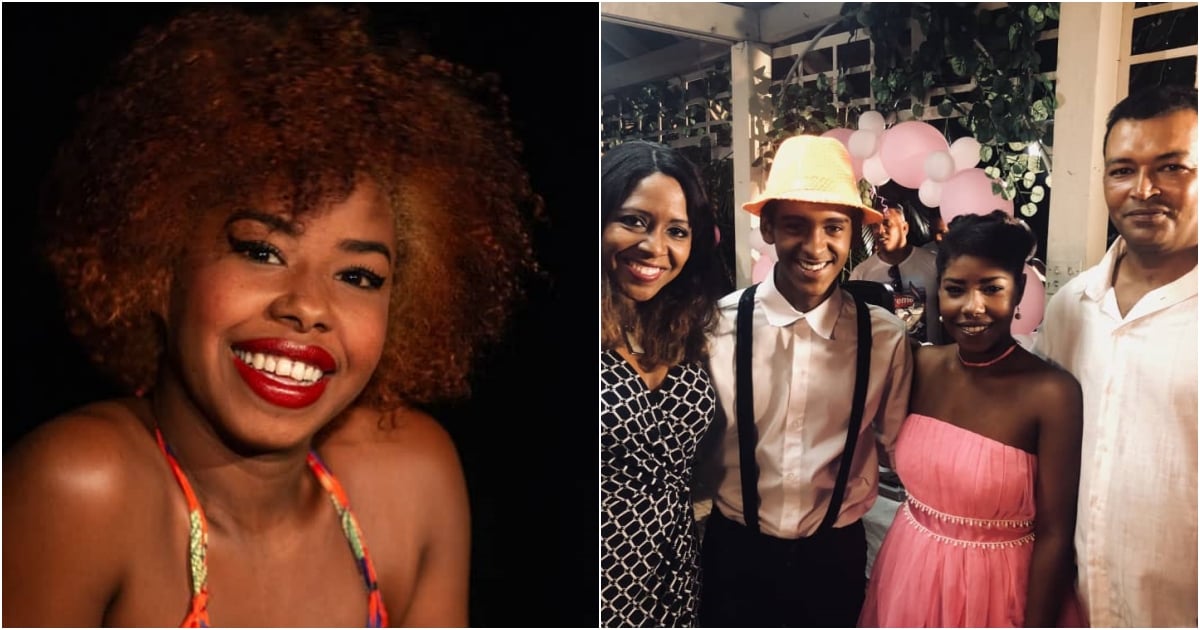
Leaving the Isle of Youth to come to Havana pursuing a dream was not easy. At just 16 years old, without family, without friends, without a home, but with the passport to enter the National School of Art (ENA), Karla Domínguez had a very clear goal: to be an actress. There was no shortage of those who doubted his “madness.” Those who turned their backs on him because they thought he was risking too much. Everyone was wrong.
Her first big performance came on the small screen when she played Sheila inthe novelThe face of the days, and this was enough for the public to be put into their pockets in the blink of an eye.
Few know that until the last day she lived on the Island, for everyone who knew her she was “the singer”: the one of the night shows, the one of every stage she missed. Although he would love to bring singing and acting together, he hopes to go “step by step, little by little. You can't cover everything, even if you want to. Now I'm starting out in acting and that takes time.”
It is assumed - as he confesses toCyberCuba this 23-year-old young woman who has ventured into radio and theater and longs to make films - that actors should not have tattoos, but she is not ashamed to have one on her left hand, with the outline of her homeland. “It's very small and you can put on makeup,” she explains proudly.
According to this self-confessed coffee addict, she suffers from vision problems that, although they do not prevent her from developing professionally, are something that she intends to solve with an operation. The worst thing about being myopic, he says, is that sometimes he passes by because he can't see people on the street well.
He can't help but express about his mother, because he wants the world to know, that she is the great driving force behind everything he does. “Without her I would have achieved nothing. He has followed me throughout this crazy journey without knowing where it would end. "Always bet everything on me."
Of all the good teachers she has had, Karla holds with special affection Corina Mestre, who was also her mother and grandmother and taught her that “when you act, your life has to go away and that is a motto that I carry with me.” Also living in his memory are those who showed him humility and the importance of bringing out the best in himself, helped him overcome his fear of heights and developed his body language.
How would you define yourself?
-Everything I have achieved in my life has been with perseverance. I try to take advantage of the good and the bad that comes my way. I have a lot of faith in human improvement and help others whenever I can, but I have a hard time placing too much trust in others. Professionally I have been successful because I am very focused. That was the key to how I came toThe face of the days, with a job that many liked. I am very demanding of myself when it comes to my career, I belong to those people who have to do things well or they don't. I am very worried that they see only the actress in me. I am very happy, although sometimes I have 'snaps' that I have learned to control a lot. I let that fury that we sometimes carry inside pass so I can clarify any situation or face any problem. I am so sincere that I have asked for problems for being so, but I feel happy.
The face of the days It has been your great debut in acting. What are you waiting for Now that you've made your debut on television through the wide door?
-The face of the days It will be important until the days of my life end. I have done other things on television, but they have been small characters, which have not had much text or as much importance as Sheila had. It was a great opportunity and it has changed my entire existence; That's why I appreciate it very much. My self-esteem as a human being has increased because the reception that the public has given to Sheila has been incredible. It exceeded my expectations. I hope to continue doing television work, that are characters that speak, that reach the lives of others like Sheila did, that are stories that we truly know are there, but that no one is capable of writing or exposing in the medium. I'm very eager for what's to come, making cute characters, whether small or big. It doesn't matter if I do more television or films, but rather working with people who are good at what they do.
I guess you don't regret not having been a chemical engineer then... What is the best thing that acting has taught you in such a short space?
-The best thing it has given me is knowing how to understand or decipher people. Being able to speak two lines with someone and already know where they are coming from. You learn a lot to listen, to see everyone as they are without judging because that is how one develops characters. For us actors, the characters are not positive or negative, but rather people who must be understood, whose reasons why they are that way must be known. I think the novel helped me a lot at that point. I don't regret not having been an engineer at all because that was an option, but not what I really wanted, not the great reason for my life.
To what extent is it more difficult to become an actor being from outside Havana?
-I don't think it's difficult to not be able to be an actor because you're not from Havana. That condition is created by the person themselves. Everything you want, you achieve. I don't think it's difficult, not even because of the geographical issue. The person who is really interested in such a beautiful profession, so full of a magical world, who knows what they really want, has to risk everything. It is difficult to take the first step and say: I am going to do this. Once you have that well thought out, everything flows.
What was it like playing a 14-year-old character when you're 21? What changes did Karla have to make to become Sheila?
-This character was complicated, especially in the physical sense. I had to keep my sideburns, like the girl who transforms when she turns 15. I tried not to shave my legs, not to let my nails grow long so that I could feel like that girl who really preserves the purity that her parents have instilled in her since she was little. I had to interact with teenagers because, from the age of 13 or 14 that Sheila and her friends were to 21 that I was, many things happen to one, good and bad, and the level of maturity is different.
How much of Sheila has stayed in you?
-All. Sheila has left me more aware of others, more aware of how loyal I must be to my loved ones, more involved with household duties. Since I was young I was very independent in all aspects and I think Sheila made me recover that hug that you have to give your mother when you feel bad, not carry the weight of worries alone, not be so surly. It made me learn how to get someone out of trouble. Now people pay more attention to me when I give advice and I myself am amazed at that. Sheila listens and makes herself heard. And I also.
You have said that when you were given the role you kept saying “I won't let you down, thank you for trusting me.” Do you feel like you kept that promise?
-I think I did it because during my time filming I was very responsible with my work. Although there were people in charge of that, I was worried about everything: the costumes, the makeup, etc. She was always willing to listen carefully to the opinions of the directors and actors such as Daysi Granados, Tamara Castellanos and Roberto Salomón (my parents), Fernando Hechavarría, Anita Rojas, Lezvy Samper, Roque Moreno, Denys Ramos, Roxana Broche, etc., those I had contact with and those I didn't. Regardless of age, everyone approached me to advise me, to tell me where I could work on this or that text. We were a big family. With everyone's help and my efforts to make a character as rich and delicious as Sheila was, I was able to fulfill the promise.
Did you imagine that Sheila would resonate so deeply with the public?
-I never imagined that Sheila would become what she was. I knew I was going to like the character, but I didn't know that people would appreciate it so much, and that it would be so important to the life of a character like Lía, for whom Sheila was so necessary.
Why do you consider that the Isle of Youth is “another island”? Do you think it has fallen behind in any way, compared to the rest of the country?
-No. I consider it to be another island geographically speaking, not because it has been left behind. What I feel is that more consideration should be given to it, so that more young people and activities can be developed in that municipality.
What would you do for that, which is your island?
-What I'm doing today. Defending her wherever I go. I feel very proud to be from there. I would love to give acting preparation workshops for children, talks for those who have no real idea of what my profession is. There are many children who believe that acting is only the result, what they see, and that is not the case. I would like to share with them the process that takes us there, which is the most important thing. I also go with my theater group El Arca to give performances. Every time we finish a season here, we go there and put on the play.
Where can you go with responsibility, optimism and talent?
-With responsibility, optimism and talent you can go where the sun does not shine. With those three possibilities that are so difficult to combine, you can get wherever you want. I think that sometimes it takes even more responsibility and talent to go where you can't imagine.
At the ENA they accepted you the third time you applied, do you think the same thing could happen with the Higher Institute of Art (ISA)?
-I already told you that I am very persevering. At the ENA they approved me on the third opportunity, I don't know what will happen with the ISA, but I do know that I will not abandon my idea of being a university student and completing my acting studies. I will try it again. I don't lose anything. I take the tests because university is what I really want. I am one of those people who thinks that life gives you and takes things from you for a reason. I never get sad when a plan falls through, but rather I say, “Well, this wasn't for me and that's why it didn't work out.” This year I am going to enter the ISA with great enthusiasm and I may pass, why not?
You have sacrificed a lot to achieve what you want. What would you say to those who live postponing their dreams and do not fight “against all odds”?
-What's the point of having a dream and not trying to fulfill it? What good is it for you to come up with ideas and have them saved in a drawer or on a cell phone in a notepad? That is useless. One has to propose it seriously; When you have it, focus, and then have the result. For me, if you are alive, you have to fight for what you want. Life is about that, whether you want to have a child or the person you want by your side. When I decided to be an actress, many told me that it was crazy, that I couldn't get as far as I have. Many even stopped talking to me and came back today to apologize and say: “We couldn't believe this could happen to you.” Unfortunately, sometimes people think more about what others think and ignore what matters to us. One has to stand up and say: “This is my goal and I am not going to rest until I achieve it.” Let them look at my story. I took the ENA tests three times, far from the capital. I did it in ninth, tenth and eleventh grades. And when they had awarded me a degree in chemical engineering, I managed to enter the ENA. When I finished eleventh grade, my family was shocked because I didn't even finish the course, but instead asked to leave and gave away the uniform the next day. You have to do what will really make you feel good for the rest of your life. When I have any problem, every time I act, every time I sing, every time I stand on stage or encourage others to follow their dreams, I have the greatest satisfaction.
What do you think?
COMMENTFiled in:
